Why is Education Important and What Impact Has It Had on Your Life?

At Southern New Hampshire University (SNHU), we believe in the power of education to transform lives – and we witness the transformative journeys our students embark on while they earn their degrees and beyond. The stories are personal but each learner begins with a simple premise: Education is important.
We asked SNHU leaders and staff to share their thoughts on education and how it has impacted their lives.
Dr. Paul LeBlanc, President, Southern New Hampshire University
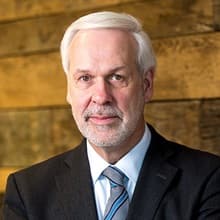 Education is the great enabler and equalizer, the force that allows individuals to reach their potential, to dream bigger dreams and to be more fully engaged with a much bigger world. It is also the engine of social mobility, the avenue to better and more meaningful work and thus opportunity for one's family and community.
Education is the great enabler and equalizer, the force that allows individuals to reach their potential, to dream bigger dreams and to be more fully engaged with a much bigger world. It is also the engine of social mobility, the avenue to better and more meaningful work and thus opportunity for one's family and community.
We know that people with college degrees vote more, divorce less, smoke less and the list goes on. Take the two together - personal development and social mobility - and education is an incredible force for good. In many ways, it is critical to the American narrative of self-improvement, merit and mobility.
It (education) has changed everything. It put me on a trajectory to an incredibly rewarding career. It has allowed a life for my daughters that their grandparents could scarcely imagine. It has allowed me to connect with the distant past through literature and history and art and to imagine a better future through philosophy, political science, and sociology.
Really, it feels like the question might be "Is there any aspect of your life education hasn't touched?" and then the answer could be simple. It would be "no."
Amelia Manning, Chief Operating Officer
 During my first year of college, I had what I remember at the time felt like a very upsetting experience. All of the first-year students went to a seminar on understanding diversity and my early interpretation of what I learned that day was pretty negative. In essence, I felt like I had been told that as a white person, I was inherently racist. I remember being really offended and, in fact, I questioned my decision to stay at the college.
During my first year of college, I had what I remember at the time felt like a very upsetting experience. All of the first-year students went to a seminar on understanding diversity and my early interpretation of what I learned that day was pretty negative. In essence, I felt like I had been told that as a white person, I was inherently racist. I remember being really offended and, in fact, I questioned my decision to stay at the college.
Four years later, after minoring in gender studies and reading Toni Morrison’s “The Bluest Eye,” I had what some would call a light-bulb moment. The actual message I had been given, but wasn’t at the time ready to hear, was about power and privilege. It was not a personal attack, as I’d initially interpreted it to be, but instead about expanding my awareness and understanding of how power works and the conscious and unconscious ways it influences each of us. It wasn’t until I read “The Bluest Eye,” and saw the world through the eyes of a child who believed she’d be happy if only she had blue eyes, that I fully understood.
Education, and learning, at its best pushes the boundaries of what we believe to be true. It opens doors and windows on our world that sheds light on our own beliefs and, in turn, on our understanding of the world and how it works and how we can make it a better place. Education is, and should be, transformative, not only for an individual, but for society.
As I stated earlier, I believe that education is transformative. It can change the trajectory of your life just as it can help to shine the light for you on opportunities that you would never have considered or believed were possible. I have seen impact not only for me, but for the thousands of students I’ve had the honor of working with here at SNHU.
Dr. Gregory Fowler, former President, Global Campus
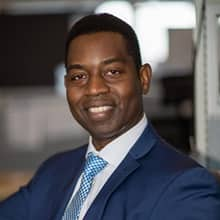 People, individually and in the various ways they organize themselves, as well as the universe we live in, are complex. Education enables us to successfully navigate our way through those complexities. In a world of competing interests and various potential outcomes, becoming educated helps us to sift through what is important and what is not to achieve our aims, whether it is something as simple as the costs of buying a candy bar, a successful path to the presidency or the elements necessary to send a satellite beyond our galaxy.
People, individually and in the various ways they organize themselves, as well as the universe we live in, are complex. Education enables us to successfully navigate our way through those complexities. In a world of competing interests and various potential outcomes, becoming educated helps us to sift through what is important and what is not to achieve our aims, whether it is something as simple as the costs of buying a candy bar, a successful path to the presidency or the elements necessary to send a satellite beyond our galaxy.
Humans are constantly forced to make choices (some don’t recognize that even choosing not to choose is a choice), all of which have repercussions. Education positions us to make the most informed choices and therefore live with the consequences, even when things don’t turn out as we expect, because even then, the learned person understands that they are being educated.
Education has led me on a journey around the world—to Europe, Australia, Central America, as well as almost every state in the U.S. I continue to be awed by the various permutations of our existence. They are so different and yet at their core, they all operate with the same basic principles that reinforce that no matter how different we are, we all continue to be so very human, driven not only by basic human needs but by our passions, our fears and our hopes.
Autumn Earnshaw Fillion, Military Academic Advising Team Lead
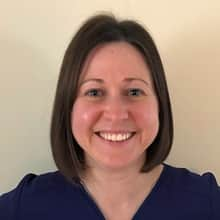 Education is important because it is such a personal journey. Each journey is different, and on the individual level, education is more than just a diploma. Everyone takes something unique from the experience and how we apply what we learn to our lives, both professionally and personally, is what makes education important to society.
Education is important because it is such a personal journey. Each journey is different, and on the individual level, education is more than just a diploma. Everyone takes something unique from the experience and how we apply what we learn to our lives, both professionally and personally, is what makes education important to society.
Education gives us a wider range of experience, makes us think about things and see things in a way we might not have before. Education can build confidence and trust within us. Beyond the "book" knowledge an education provides, it displays commitment and determination.
I know it is cliché to say, but education has opened doors for me professionally and personally. I love my job and the career that my master's degree led me to. I have met awesome people along the way that have shaped my life. Education has become my profession so all I have and am has been influenced by my education.
Amy Stevens, Vice President, Academic Resources & Technology, Executive Director of CBE Programs
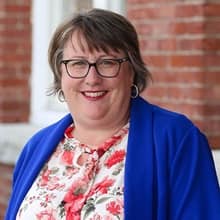 Education, or rather the ability to make knowledge out of what we experience, is at the heart of who we are as a species. Learning to read has taken us on adventures, communicated our history and traditions and posited challenges for future generations to grapple with. Learning math has given us roads and bridges, airplanes and complex economies. Combined, we can eradicate diseases, transition governments without fire power, and connect emotionally with neighbors down the street or half-way around the world.
Education, or rather the ability to make knowledge out of what we experience, is at the heart of who we are as a species. Learning to read has taken us on adventures, communicated our history and traditions and posited challenges for future generations to grapple with. Learning math has given us roads and bridges, airplanes and complex economies. Combined, we can eradicate diseases, transition governments without fire power, and connect emotionally with neighbors down the street or half-way around the world.
I can’t think of anything in my life that hasn’t been touched by education. I am on my fourth career, three of which didn’t exist when I graduated college. I can recreate myself because I have a strong foundation in critical thinking skills, I can write and do some basic math, I can learn what I don’t know and gain wisdom from my mistakes.
Education continues to have an impact on my life, and hopefully I can continue to add value to the education SNHU students earn through my work in and out of the classroom.
Dr. Jeffrey Czarnec, Associate Dean, Criminal Justice and Social Sciences
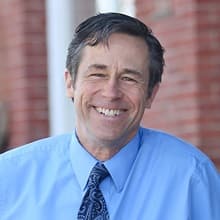 Education can mitigate a failure to understand the mosaic of viewpoints, experiences and discoveries made by others. A lack of education not only limits the individual to a myopic and truncated view of the world, but impacts society as a whole if this approach to life is adopted wholesale. It has been said that education provides for a world-view of the human condition that leads to cohesive discourse, dialogue and remedy.
Education can mitigate a failure to understand the mosaic of viewpoints, experiences and discoveries made by others. A lack of education not only limits the individual to a myopic and truncated view of the world, but impacts society as a whole if this approach to life is adopted wholesale. It has been said that education provides for a world-view of the human condition that leads to cohesive discourse, dialogue and remedy.
Education has allowed for ME to have a positive impact on scores of others. An education is to be shared, it must contribute to the well-being of others and must provoke change where none had previously occurred.
Dr. Cheryl Frederick, Academic Dean of STEM
 Education really can change lives. Educated individuals have potential to earn a better living either through higher salaries or income stability. Society benefits from the skills and knowledge educated individuals apply and share through their interactions in their community. Society benefits from the salaries spent by individuals with high paying jobs. Thanks to communication technology, these contributions can be shared at a global level.
Education really can change lives. Educated individuals have potential to earn a better living either through higher salaries or income stability. Society benefits from the skills and knowledge educated individuals apply and share through their interactions in their community. Society benefits from the salaries spent by individuals with high paying jobs. Thanks to communication technology, these contributions can be shared at a global level.
I grew up in a small town and was raised by a single mother. I watched my mother's job opportunities improve after she finished her college degree. This instilled how important education is and I made a decision at a young age that I would go to college. I always loved STEM-related classes and the latest innovations in technology. Education has allowed me to participate in the forefront of the application of innovative information technology and to connect with very interesting individuals. I have had the privilege of working for some amazing companies, on interesting projects, and been able to see different areas of the country due to work travel.
Kristi Durette, Associate Vice President | Institutional Advancement
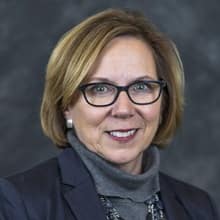 Education broadly defined is about creating or being part of informative experiences. My life has been shaped significantly by community engagement, with its heart being that of enlightenment and learning. As a result, I find myself drawn to opportunities to help promote and build engaged and informed communities where information, learning and connection is fluid, shared and valued.
Education broadly defined is about creating or being part of informative experiences. My life has been shaped significantly by community engagement, with its heart being that of enlightenment and learning. As a result, I find myself drawn to opportunities to help promote and build engaged and informed communities where information, learning and connection is fluid, shared and valued.
I believe at my core I have a curiosity that encourages me to always be a learner; that every interaction is an opportunity to educate and be educated. And in those exchanges, the opportunity to build a more informed and engaged community. Teachers who created opportunities for students like me to engage in learning, decision-making about community values and shared responsibility for building the community come in the form of leaders, peers, students, neighbors and strangers we encounter as life unfolds. I feel like I learn something about myself and my world every day and that is the greatest gift.
Matthew Belanger, Associate Vice President of Academic Strategy and Operations
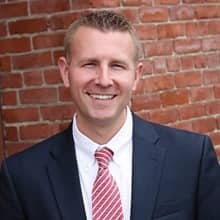 Education opens doors. Having a degree opens doors. The process of learning and becoming educated creates a person who is well-rounded, can think critically, be prepared to make hard decisions, read, write, do arithmetic, learn societal norms, express your emotions and more. These create quality and are critically important to society.
Education opens doors. Having a degree opens doors. The process of learning and becoming educated creates a person who is well-rounded, can think critically, be prepared to make hard decisions, read, write, do arithmetic, learn societal norms, express your emotions and more. These create quality and are critically important to society.
My education has had a profound impact on my life. It has provided me with the opportunity to positively impact the lives of others in various, countless ways. Without my education I would not be where I am today, in a position to help other students (many of whom are the first in their family like I was) be successful in their own pursuit of a degree.
The process of earning my education also had a significant impact. I was able to work with students of all ages to understand how students learn best and what that learning (and education) really means to them. My own education has taught me about diversity, strength, hard work, motivation and fulfillment.
Now as a father, what I have learned about education will be passed down to my children and my children’s children. They will grow up knowing how important their education is and how much I’ll be there to support them.
Tim Lehmann, Vice President of Student Financial Services
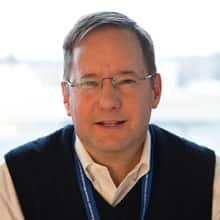 I think education is the gateway to "better." We are a better society when people are educated, we are better individuals when people are educated and we make better decisions when we are educated. Education has become one of the clearest indicators of life outcomes such as employment, income and social status, and it is a strong predictor of well-being.
I think education is the gateway to "better." We are a better society when people are educated, we are better individuals when people are educated and we make better decisions when we are educated. Education has become one of the clearest indicators of life outcomes such as employment, income and social status, and it is a strong predictor of well-being.
It has had an incredible impact on my life. It continues to impact my attitudes and altitude. I continue to believe that there is an "education effect" that correlates to better social and economic outcomes based on how much education a person has. I know in my life this is true.
Dr. Gwen Britton, Associate Vice President, STEM Professions
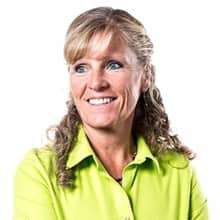 The more knowledge human beings have, the better they understand the world around them; the relationships they have with people, how to take care of themselves and others, and how to make their own personal ecosystem a better place to be.
The more knowledge human beings have, the better they understand the world around them; the relationships they have with people, how to take care of themselves and others, and how to make their own personal ecosystem a better place to be.
Knowledge also contributes to understanding of how different cultures and geographies live out their lives – differences in perspective, beliefs, experiences and how they influence the world as a whole; again, more knowledge, more connections between what we know and how we know it.
I feel like I have lived a pretty charmed life. I’ve lived in many different places across the United States, from east to west and in the middle too. I also lived in Europe and Guam. I was exposed to different cultures and educational perspectives from the first day of my education. Learning from different people in different places made me want to try to teach others as well. The biggest impact it has had on my life is my desire to pay it forward and help others discover their own potential through learning.
Tiffany Fifer, Director of Online Engagement
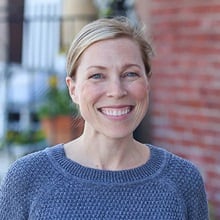 Education can bring a disparate group of people together to have hard conversations, solve big problems or make the world a better place. When we are dedicated to learning more about ourselves, and the world around us, we are able to shed some of our fears, biases and barriers.
Education can bring a disparate group of people together to have hard conversations, solve big problems or make the world a better place. When we are dedicated to learning more about ourselves, and the world around us, we are able to shed some of our fears, biases and barriers.
My father has a high school GED and this limited his career choices in life. While he is one of the hardest workers I know, furthering his education would have opened so many more doors for him. It was very important to him that his children have the chance to go to college.
Through Alternative Break trips, I have seen college students be transformed by relief work in an impacted community. These students put their own luxuries aside, learned about new cultures and rolled up their sleeves to make the world a little better. Many have gone on to work in service organizations and share their talents with the world. Education makes this type of growth possible.
Education has taken me around the world. I have learned new languages, lived with students from different countries, helped students study abroad and traveled with students through Italy and the Dominican Republic.
Education has also taught me how to solve problems. The position I now hold in online student engagement didn’t exist when I was in college and there aren’t many colleagues in the field doing this work yet. My education has given me the confidence to take risks, analyze opportunities and determine how we can lead in this area.
Finally, education has given me the opportunity to pay it forward. So many wonderful mentors had such an impact on me growing up and I feel it is my duty (and complete pleasure) to support our students through their own journey of co-curricular involvement and education.
Pamme Boutselis ‘15, ‘17G is a staff writer and senior content director in higher education. Follow her on Twitter @pammeb or connect on LinkedIn.
Explore more content like this article

Is Getting a Second Bachelor’s Degree Worth It?
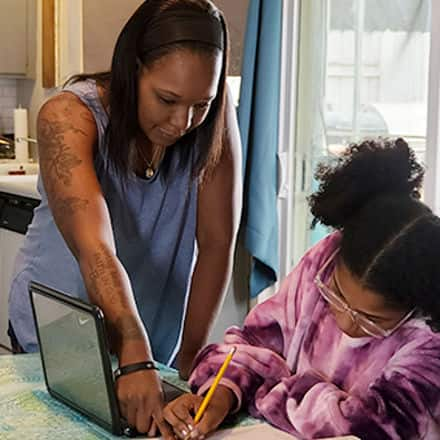
Picture an Online Degree at Your Own Pace

How to Make Connections in College
About Southern New Hampshire University

SNHU is a nonprofit, accredited university with a mission to make high-quality education more accessible and affordable for everyone.
Founded in 1932, and online since 1995, we’ve helped countless students reach their goals with flexible, career-focused programs. Our 300-acre campus in Manchester, NH is home to over 3,000 students, and we serve over 135,000 students online. Visit our about SNHU page to learn more about our mission, accreditations, leadership team, national recognitions and awards.


